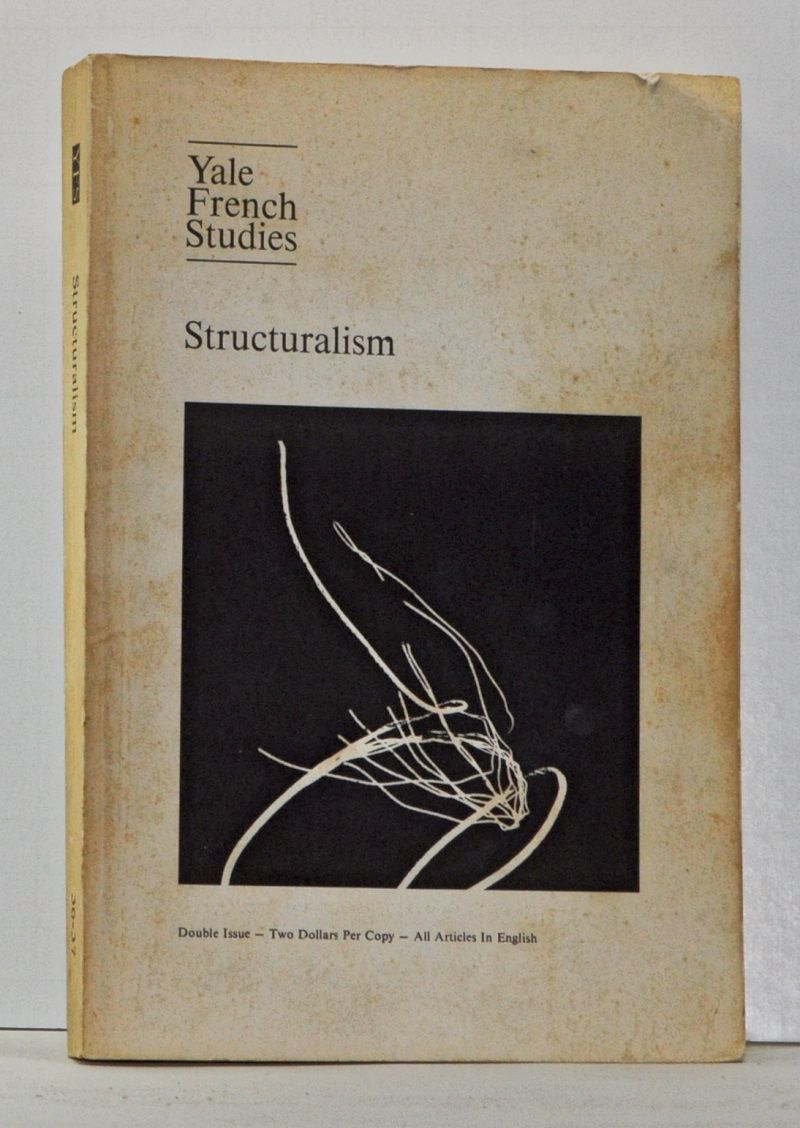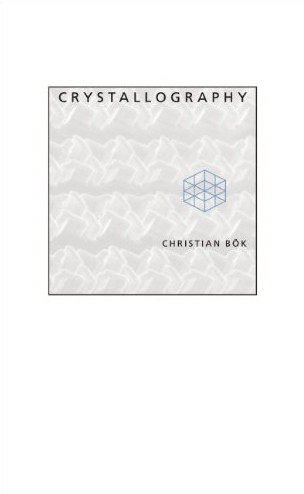Yale French Studies 36/37: Structuralism (1966)
Filed under journal | Tags: · anthropology, language, linguistics, literary criticism, literary theory, philosophy, psychoanalysis, structuralism, unconscious

An early English-language collection of French structuralist writings.
Essays by André Martinet, Philip E. Lewis, Claude Lévi-Strauss, Harold W. Scheffer, Sheldon Nodelman, Jan Miel, Jacques Lacan, Geoffrey Hartman, Jacques Ehrmann, Michael Riffaterre, and Victoria L. Rippere. Bibliographies compiled by Elizabeth Barber, Allen R. Maxwell, Jacques Lacan, Anthony G. Wilden, and T. Todorov.
Edited by Jacques Ehrmann
Publisher Yale University Press, 1966
272 pages
PDF (17 MB)
Comment (1)Christian Bök: Crystallography (1994/2003)
Filed under poetry | Tags: · concrete poetry, language, pataphysics, poetry, science, visual poetry

“Crystallography’ means the study of crystals, but also, taken literally, ‘lucid writing.’ The book exists in the intersection of poetry and science, exploring the relationship between language and crystals – looking at language as a crystal, a space in which the chaos of individual parts align to expose a perfect formation of structure. As Bök himself says, ‘a word is a bit of crystal in formation,’ suggesting there is a space in which words, like crystals, can resonate pure form.”
First edition published 1994
Second edition, revised
Publisher Coach House Books, Toronto, 2003
ISBN 1552451194
157 pages
via ExP
Reviews: Darren Wershler-Henry (2001), Adam Golaski (Open Letters Monthly 2007), Ian Rae (Canadian Literature 2011).
Commentary: Nathan Brown (2004), James Elkins (2014).
PDF (removed on 2016-8-16 upon request of the publisher)
Comment (0)Venetia Porter: Word Into Art: Artists of the Modern Middle East (2006)
Filed under catalogue | Tags: · africa, art, art history, calligraphy, ceramics, contemporary art, hurufiyya, islam, language, literature, middle east, painting

This landmark catalogue is one of “the most comprehensive gatherings of Middle Eastern artists that has been undertaken in recent times.” Based on an exhibition mounted by the British Museum, it is “devoted to the recurring theme of calligraphy and how artists from the Middle East and North Africa use the traditional visual vocabulary of Arabic letters as a point of departure and an integral expressive element. The works, which were drawn mostly from the British Museum’s own collection of contemporary Islamic art, demonstrate how each artist celebrates the aesthetic powers and plasticity of the letters, while simultaneously pushing the boundaries, even sometimes subverting traditional canons. The artists manipulate letters, often transforming them beyond recognition, using ingenious and innovative methods, materials, styles, and daring compositions. Some use letters for purely aesthetic reasons, while others use them more instrumentally as writing, signs, or ciphers that allow the artists to grapple with issues of socio-political orientation and cultural and religious identity. For some artists this resonates with the sacred tradition of Islam and the Qur’an, while for others it is an undeniable part of their cultural heritage and a natural vehicle for expression.” (Sourced from the two reviews linked below.)
Foreword by Saeb Eigner
With contributions by Isabelle Caussé
Publisher British Museum Press, London, 2006
ISBN 0714111635, 9780714111636
144 pages
via IslamicManuscripts.info
Reviews: Islamic Monthly (2006), Maryam Ekhtiar (CAA Reviews 2007).
PDF (124 MB)
Comment (0)
